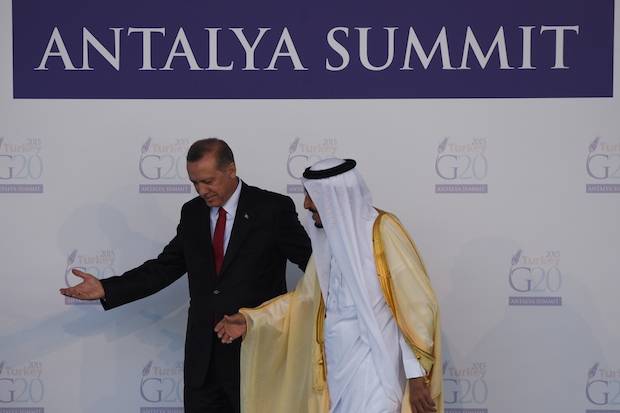It isn’t just Iran who have been angered by the execution of Shia cleric Nimr al-Nimr. Protests have erupted in Bahrain, Lebanon, Pakistan and Iraq, all places where the 1400-year-old Shia-Sunni divide remains a faultline. Iran’s reaction may seem uncompromising, with Ayatollah Khamenei tweeting: ‘The unjustly spilt blood of this martyr will have quick consequences’; but they have also sounded a note of caution. President Rouhani called for the arrest of the mob who stormed the Saudi embassy buildings. Perhaps he knows that, in the long run, Iran’s star is rising and the Saudis’ is falling.
In January of last year, Douglas Murray observed in The Spectator that ‘the region’s two most ambitious centres of power – the House of Saud and the Ayatollahs of Iran – find themselves fighting each other not just for influence but even perhaps for survival.’ In that fight, Iran has some major advantages.
The House of Saud’s hold on Arabia has faced growing tension as its population grows, and it becomes harder to shower them with cash.








Comments
Join the debate for just $5 for 3 months
Be part of the conversation with other Spectator readers by getting your first three months for $5.
UNLOCK ACCESS Just $5 for 3 monthsAlready a subscriber? Log in